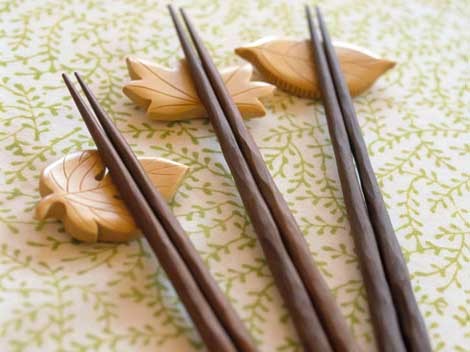| Home > China Feature |
Powerful Empresses in Chinese History
Empress Dou Yi of the Western Han Dynasty Empress Dou (d. 135 BC), formally known as Empress Xiaowen, was the wife of Emperor Wen of the Western Han Dynasty (dates) and mother of Emperor Jing. She greatly influenced the reigns of her husband and her son with her adherence to Taoist philosophy. She contributed much to the peaceful rule of Emperors Wen and Jing, commonly viewed as one of the golden ages in Chinese history. Empress Dou was born into a poor family. When she was young, she was summoned into the court of Emperor Hui to be a lady- in-waiting. On one occasion, Empress Dowager Lü, Emperor Hui’s mother, wanted to give some of the ladies- in- waiting to the imperial princes as gifts. Lady Dou was chosen for Liu Heng, Prince of Dai. Prince of Dai later became emperor in the aftermath of the Emperor Lü. Lady Dou, then a favorite consort of Prince Dai and the mother of Prince Qi, was promoted empress in 179 BC. Her son, Prince Qi, was named Crown Prince. Empress Dou was a strict follower of Taoism, a school of traditional Chinese philosophy as encapsulated in the writings attributed to Laozi and the legendary Yellow Emperor. She urged her children, including Prince Qi, her grandchildren, and her clan members to study these writings to learn about the ideas of non-interference with nature and of thriftiness in living.. Empress Dou was one of the earliest political female figures in Chinese history. Unlike her stepmother-in-law Empress Dowager Lü who is viewed negatively in Chinese history, Empress Dou has been largely viewed positively for her influence over the reigns of her husband and son. Empress Yan Ji Yan Ji was pretty and gentle when she first entered the royal family. She was favored by Emperor An (94-125) of the East Han Dynasty and became his empress in 115. Emperor An was heavily influenced by Yan Ji and promoted her relatives under her influence. The clan of the empress, Empress Yan's three brothers in particular, wielded much political power in the court. Prince Bao was born to Emperor An and his concubine Consort Li in 115, shortly after Emperor An had promoted Yan Ji empress. Empress Yan herself had no son. Out of jealousy, she poisoned Consort Li to death, an act that went unpunished. Empress Yan Ji further accused Crown Prince Bao and his servants of crimes they had never committed. Emperor An, however, believed her and demoted Crown Prince Bao to Prince of Jiyin. In 125, Emperor An suddenly felt ill when he was on a trip to Wancheng (in modern Nanyang, Henan). He died before he made it back to Luoyang, the capital. Empress Dowager Yan was childless but yearning to hold on to power. Although Prince Bao was Emperor An's only son and therefore logical heir, Empress Yan resolved to make someone younger emperor so that she could better control him. She therefore made Liu Yi, the Marquess of Beixiang, emperor. The 10-year-old Prince Bao was excluded not only from succession but also from official mourning for his father. Empress Dowager Yan and her brothers thereby dominated the political scene. The young emperor, however, died later that year, and a number of eunuchs loyal to Prince Bao made the latter emperor. For several days, the eunuchs-controlled forces battled with that of the empress dowager, defeating the empress dowager and her brothers. The Yan clan was slaughtered, whereas Empress Dowager Yan was confined to her palace until her death in 126. Empress Dowager Liang Na Empress Liang Na (116-150), formally known as Empress Shunlie (literally "the kind and accomplished empress"), was an empress during the Han Dynasty. Her husband was Emperor Shun. She later acted as regent for his son Emperor Chong, and the two subsequent emperors selected from collateral lines, Emperor Zhi and Emperor Huan. As empress dowager and regent, she appeared to be diligent and honest, but she trusted her violent and corrupt brother Liang Ji. After Empress Dowager Liang's death, the Liang clan was destroyed. Liang Na was born in 116 AD. Her father was Liang Shang, the Marquess of Chengshi, who was also related to Consort Liang, the mother of Emperor He. Liang Na was said to be diligent in doing needlework as well as in studying history and the Confucian classics as a young girl. In 128, when Liang Na was 12, she was selected to be Emperor Shun's imperial consort and became his favorite. In 132, Emperor Shun made her empress, believing Liang was the most virtuous consort. As empress, Empress Liang showed considerable humility, and restrained from interfering with her husband's court. Because of her, Emperor Shun trusted her relatives, promoting her father quicky to be Grand Marshall. Empress Liang's brothers also became high-raking officials. In 144, as Emperor Shun was growing ill, he made Liu Bing, his only son and a toddler, crown prince. Emperor Shun died four months later. Empress Liang became empress dowager and served as regent. Empress Dowager Liang appeared to be diligent in governing the empire, and she trusted officials with integrity to advise her on important affairs. However, she also trusted her brother Liang Ji who used her position to further consolidate his own power. In 145, the young Emperor Chong died. Liang Ji convinced Empress Dowager Liang to make the seven-year-old Liu Zuan Emperor Zhi so that he could easily control him. Empress Dowager Liang, on the other hand, continued to serve as regent. In 146, Liang Ji poisoned the young emperor to death because the latter offended him by openly calling him "an arrogant general". Liang Ji persuaded Empress Dowager Liang to make another 14-year-old Emperor Huan. Empress Dowager Liang continued to serve as regent. In 147, Emperor Huan married Empress Dowager Liang's sister and made her empress. In 150, Empress Dowager Liang announced that she was stepping down as regent and returning imperial power to Emperor Huan. She died later that year and was buried with her husband Emperor Shun. However, her brother remained in power and became more violent and corrupt. Emperor Huan finally reacted and overthrow Liang Ji in 159. The Liang clan was subsequently slaughtered.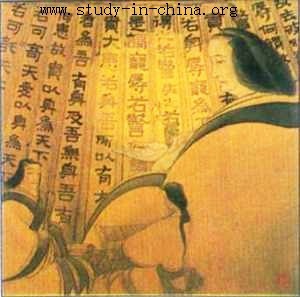
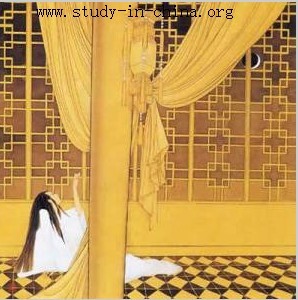
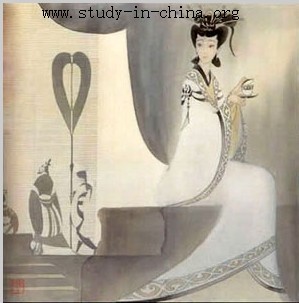
Art
 more
moreYicheng Hua Gu
The Flower Drum 花鼓 of southern Shanxi Province is a kind of folk d...
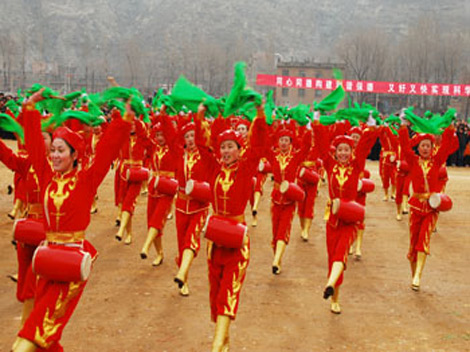
Sculpture in Qianling Mausoleum
The sculpture of Qianling Mausoleum is the main relic of the ground ...
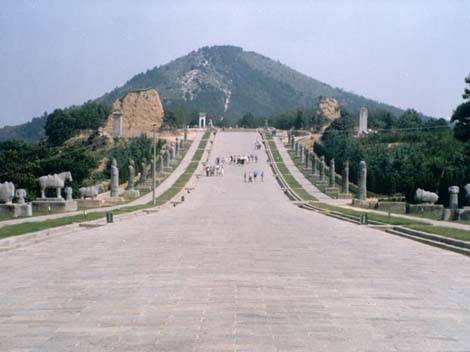
A Sweet Art:Sugar Painting
In and around China’s southwestern Sichuan Province, it is usual to ...
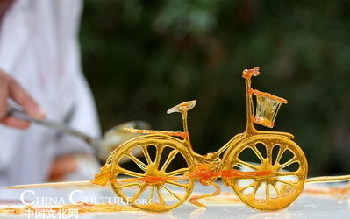
Custom
 more
moreWeb Dictionary
Martial Arts
“Chinese Kung Fu Hot” in Alfred University
“Part the Wild Horse’s Maneton Both Sides”, “White Crane Spreads Its...
King of Kungfu
Name:Donnie Yen Born:27 July 1963, Canton, China Background:Born...
Martial Arts Competition
Chinese Confucius Institute hold the first "Confucius Cup" Children'...





 print
print  email
email  Favorite
Favorite  Transtlate
Transtlate 